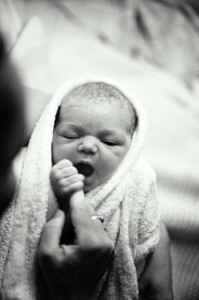Congratulations, you’re a mum! You made it through the gruelling, excruciating process of labour and childbirth but, guess what? It’s not over! Here are some of the postpartum symptoms you may experience:
In the first few days
Episiotomy pain – whether your tore or had an episiotomy that wound is going to hurt for a while. Sitting down comfortably seems impossible! And just when you think the pain is going away the stitches dissolve and that process hurts too! If you have access to a donut shaped pillow this can be an aid to sitting comfortably. You will need to keep your wound dry and clean so two showers are day are recommended and a simple way to dry your wound is to use your hairdryer on a cool setting. Silver lining – I had a third degree tear with my first child and was also given an episiotomy to prevent the tear from going any further, which was only about 1cm away from being a disaster, but I managed to wreck all the nerve endings that time and experienced no pain for subsequent tears with my other deliveries!
C-section pain – C-sections also experience wound pain and considering that their incision cuts through several layers to the uterus it’s no wonder! Make sure you follow your obstetrician’s instructions to the letter making sure you rest as much as you can to speed up your recovery. You will also need to keep your stitches and wound clean and dry to prevent infection.
Incontinence – this is embarrassing! Sneezing, coughing or laughing spell a bladder leakage and it’s not pretty. Get onto your pelvic floor muscles ASAP after delivery. I’m told the best way to do this is not to just squeeze your muscles tight as though trying to stop your wee mid flow but rather to picture yourself sucking up a spaghetti. That might sound a little gross but the idea is to get your muscles drawing in and up in this exercise.
Anal fissures and haemorrhoids – these are both a result of straining/pushing both in labour and afterwards when trying to pass bowel motions. If you are some one who struggles with constipation get onto bowel softeners/laxatives while you’re still in hospital. They are very unpleasant and can last for weeks causing pain and bleeding. The best treatment for this is a high fibre diet, drinking lots of water and using a cream like Proctosedyl.
Muscle separation – most women experience some form of muscle separation. These are generally measured in finger widths. 1-2 fingers separation is mild and most common. If you have large babies or have already experienced muscle separation in previous pregnancies you might have separation as large as 3-4 fingers which is considered severe. Pregnancy recovery shorts are a great tool here for speeding up the recovery. I wore these, on physiotherapists advice, for 24 hours a day for the first 6 weeks after my fourth child was born and I halved my separation from 4 fingers to 2. Doing your pelvic floor exercises will help with the separation and a visit to a good physiotherapist is also worth your while if your separation is more than 2 fingers. It can take up to 12 months after birth for these muscles to come back together again so don’t get too discouraged.
After birth pains – in subsequent pregnancies women can experience after birth pains when breastfeeding. These feel like contractions and in essence they are because the breast feeding stimulates the uterus as it continues to contract, or shrink, to its original size. These can be particularly painful, especially after a difficult delivery. Your doctor will be able to prescribe pain relief so that you don’t dread breastfeeding your new bub and they will disappear once the uterus has returned to its pre partum state.
6 weeks after birth
Discomfort while making love and a low libido – your body has undergone a trauma and if you have delivered naturally, and additionally experienced an episiotomy or tear, making love can be an uncomfortable and even painful experience. Using a lubricant like KY Jelly which can be purchased in supermarkets or pharmacies will help ease pain and discomfort until things are back to normal. You might also feel that even though it has been 6 weeks since you’ve had your baby, you don’t feel like making love and that is a completely normal experience. This is a natural response from your body which knows that you are not fertile and that you are still feeding a dependant child. This will lessen over time but its best to be upfront to your hubby about it and help him to patient with you.
Hair loss and trouble with your gums – at about the 3 month mark after birth your hair will start malting and you may also experience sore or bleeding gums. This is a normal experience but you can alleviate the severity by taking an iron supplement or pregnancy/breastfeeding multivitamin at this time if you haven’t already.
Turbulent emotions, fatigue and feeling overwhelmed – there is no manual to raising children and it might be that your baby does not sleep well, and even if they do, motherhood is a very fatiguing experience. Make sure you don’t take on too much and that you take time out for yourself. If you feel overwhelmed seek help straight away and don’t ever feel guilty about feeling tired, or under par.
Do you have any other post partum pests to share? If so use the comment section below to share them with us!
Originally posted 2014-06-18 22:14:57.


You’ve covered all the physical pests well-I think a few comments on psychological pests should also be included
Thanks Sarah. We have an accompanying article here: https://australiancatholicmums.com/postpartum-red-flags/